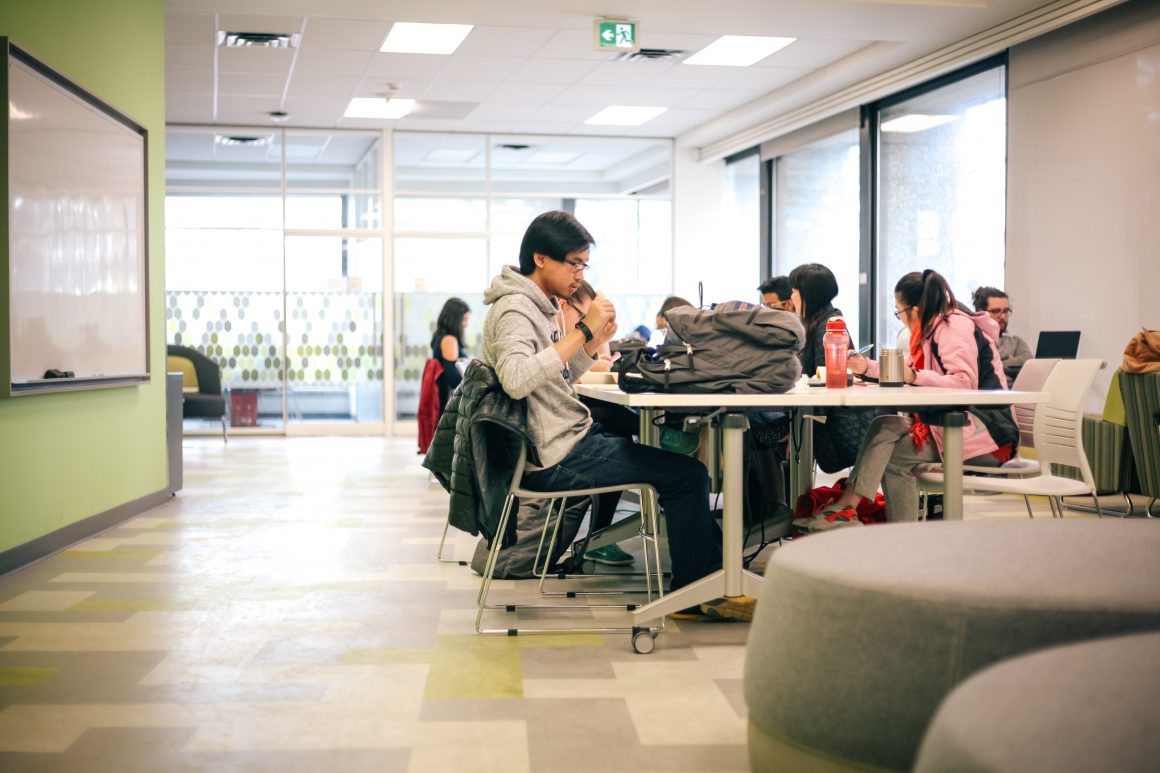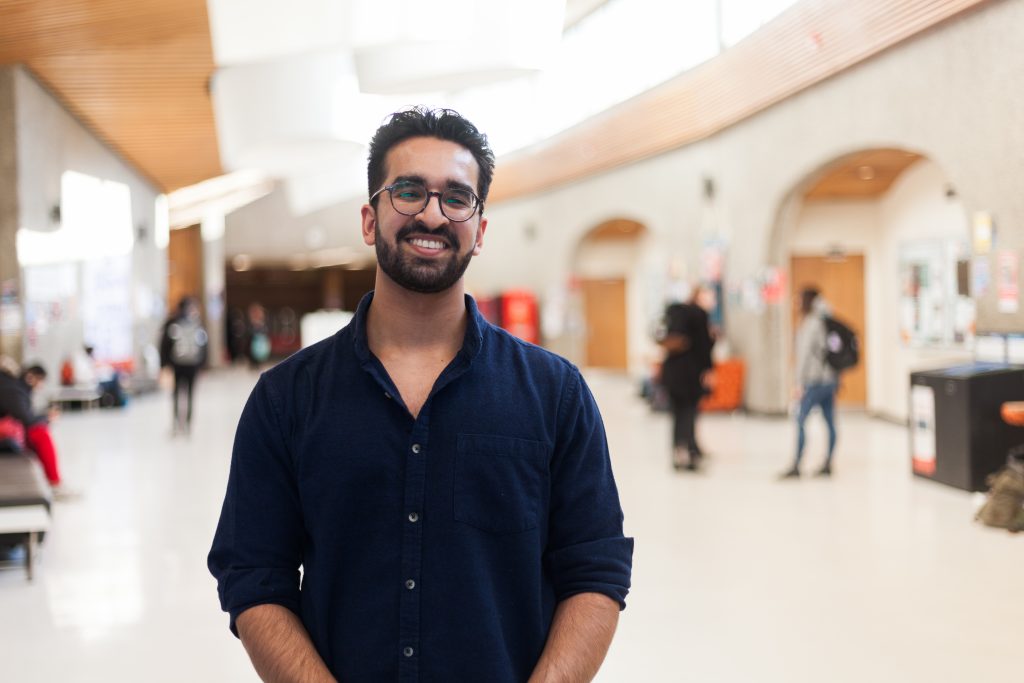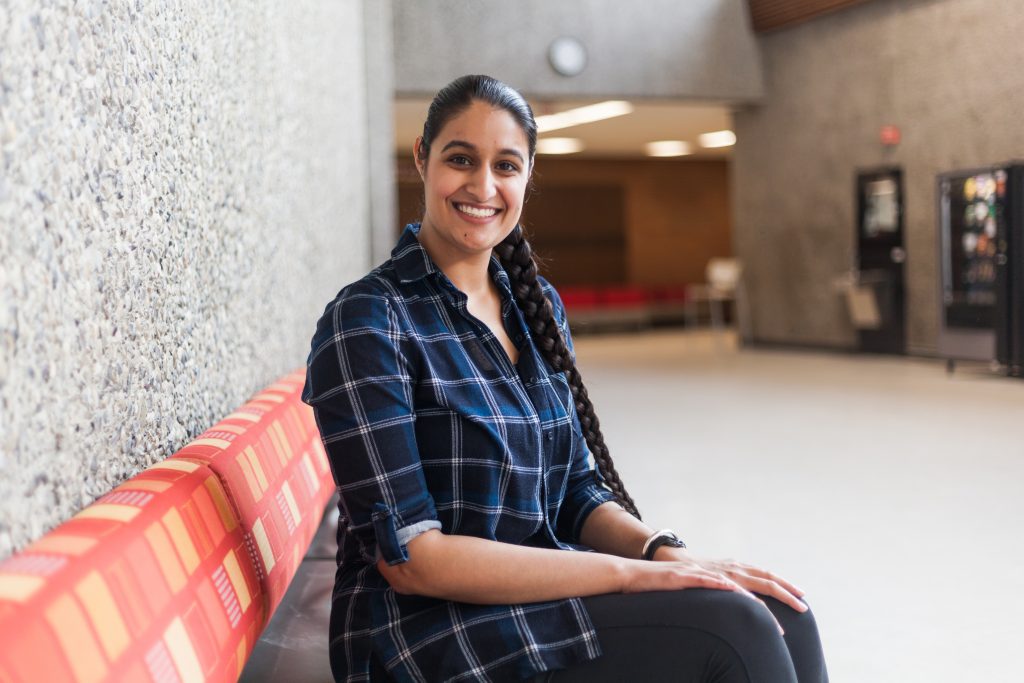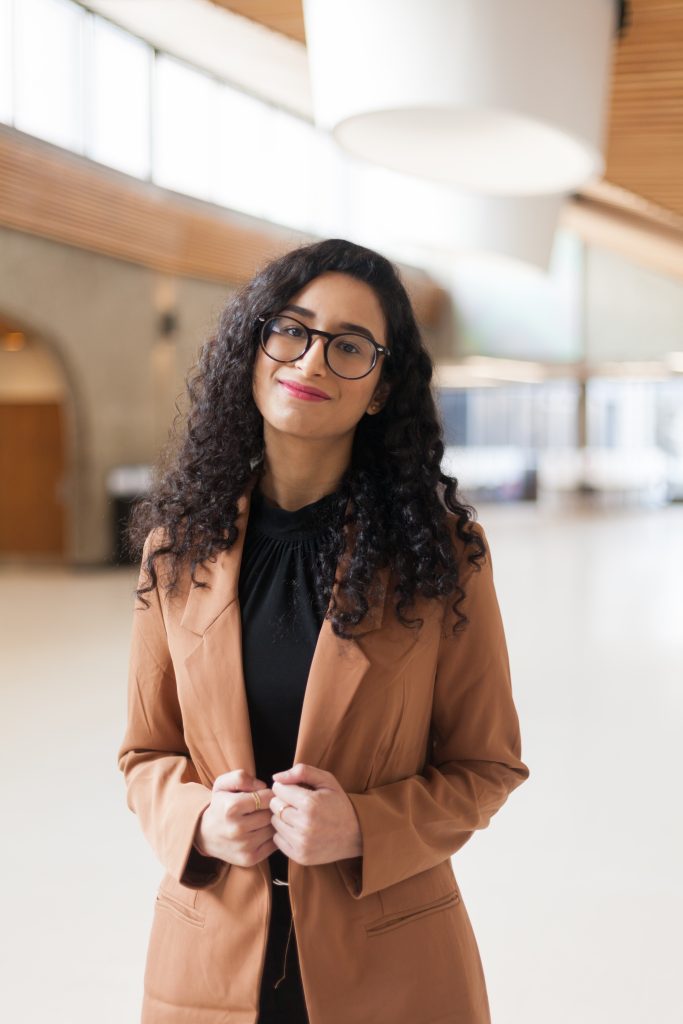
SU faculty rep Chaten Jessel on collaborative community initiatives at the U of C
By Cristina Paolozzi, April 28 2021—
Returning Students’ Union (SU) Faculty of Science representative Chaten Jessel has been working hard this past year, creating community initiatives in support of undergraduate students at the University of Calgary.
Three of these projects were in collaboration with other SU representatives from the 2019–20 school year — Manpreet Sahota and Pragya Chopra — and will carry on into Jessel’s second term as faculty rep. These projects include the Earth Science (ES) 160 study space renovation, the Inclusion, Diversity and Equity (IDEA) Awards and the Open Education Resource Fund (OERF).
The $35,460.22 ES160 renovation will provide students with 25 new study carrels with access to outlets and a study lamp. Along with other space improvements like white boards and new paint, this initiative hopes to reduce the severe lack of study spaces on campus and will allow all students to effectively complete their academic work when it is deemed safe to return to campus.
The $15,000 IDEA Awards, will offer two scholarships worth $1,500 each year to undergraduate students who demonstrate exemplary work in tackling EDI issues. The purpose of these awards will be to recognize students who are actively engaged in improving EDI on campus and make their education more accessible.
The creation of the $500,000 OERF will serve to incentivize professors on campus to invest their time into cost saving open education resources (OER). The OERF project will work in much the same way as the pilot project run by the Taylor Institute for Teaching and Learning in 2017. During this pilot, funding was provided for professors to adopt existing peer reviewed OER, to adapt existing OER and to create new OER that correspond to the learning outcomes of their class. Educators were able to use these funds to hire student research assistants to help them throughout this process, providing meaningful student employment.
Jessel spoke with the Gauntlet about these initiatives and how he hopes they will benefit the campus community coming into a new school year.

Jessel says that the reason he chose to move ahead on these three issues specifically was because he saw the rising need for equity, diversity and inclusion (EDI) initiatives on campus as a member of the Students’ Legislative Council (SLC) as well as the ability for students to succeed in their education in proper learning environments.
“The big three challenges that I did try to tackle were the lack of study spaces, EDI issues and also student affordability — which is decreasing by the year,” said Jessel. “When thinking about the things that really are affecting students, I think EDI issues and affordability are kind of the big ones. If people aren’t getting the opportunities that they need to succeed, to go forward, to be able to excel in their education, I think that’s really really problematic and something everybody, not just me, on SLC this year agrees with. EDI issues have come to the forefront of all of our minds and they’re so critical in terms of creating a fair and just society and university.
“As for the lack of study spaces, in the past ten or so years, the population of the university has increased by around five-or-six thousand students. The number of study spaces has not increased to that same amount.”
Jessel shared that, back when classes were still in person, the sheer number of students rushing to find study space impacted the ability to get work done at the university.
“If we can tackle that in some way, shape or form — even if it is just to add a few extra desks — how many hours are people going to spend sitting at those desks, working, learning, growing as people,” he said. “And, if we can offer more spaces for people to do that to make it easier, to upgrade the desks that are already there, that’s something I think is awesome and super impactful.”
Jessel was adamant that the collaborative efforts from all three Faculty of Science representatives be recognized, specifically with regard to the study space renovation, as much of the planning and design process came from late-night meetings online to try and get these initiatives off the ground.
“This was a collective effort. It was our Science rep team together that met with all the staff over at the university, we’re the ones who worked together on the application. I love them from the bottom of my heart, they’re both incredible people,” shared Jessel.
In a statement to the Gauntlet, Sahota and Chopra mentioned some of the updates that will be made to ES160 and how this improvement will impact students.
“Since the beginning of our terms, we have been striving to improve study spaces for students by utilizing the Quality Money fund. We are proud and excited to announce that our Quality Money project to renovate Earth Science 160 (ES160) has been approved. We would like to thank the Faculty of Science for their unwavering support in the application process. A special thank you to Ian Mellor (Previous Director – Technical Operations & Planning), Michelle Forgeron (Furniture & Move Coordinator – Campus Architecture) and Diana González (Furniture & Move Coordinator– Campus Architecture) for bringing this project to life.
ES160 is in a wheelchair-accessible, high-traffic area for all students beyond the Faculty of Science. The current layout of ES160 consists of an underutilized computer lab with outdated study carrels. The new renovated space will be tailored to student needs with accessible and ergonomic resources including new study carrels with plug-ins, a 48’’X72’’ whiteboard, upgraded lighting and newly painted walls. We hope that the rejuvenated space will serve a larger population of students and become a new favorite study spot for our students,” the statement reads.
With reference to the IDEA Awards, Jessel says that there is no award of this sort that existed before this project at the university.
“Awards tend to be a big deal, they tend to be promoted across all the SU channels, the university channels. There was no award to share with students the fact that the work is being done to tackle these issues,” said Jessel.
“I think that promoting the work that is already being done — because students are working to raise everybody up — they deserve to be rewarded for their work. Sharing this award and sharing the nominees, the stories they could share about their initiatives and their hard work, by promoting that, we’re inspiring the next generation of leaders to take on this meaningful work. We’re recognizing significant advocacy.”
Jessel also hopes that the IDEA Awards will help students who are working on EDI initiatives in the community to offset the cost of spending their own free time and energy on EDI instead of supporting themselves — just one of the ways he hopes the scholarship can motivate individuals on campus and show how valuable this work is.
The third initiative, the OERF, was inspired by the conversations Jessel had with vice-president academic Semhar Abraha. She suggested to contact library staff to see what ways costs could be reduced for students. Along with other costs like tuition and housing, Jessel felt like the most useful thing that could be done was to help offset the rising cost of education by providing funds for other costs like textbooks.
“The beautiful part about open education resources is that, say you’re in a first-year class of 600 students. If your professor decides to use an open education resource, that’s $200 that every student in that class no longer has to pay. It’s such a pervasive difference — and $200 is kind of a lot of money. The fact that this initiative has the ability to reach so many people, to affect so many lives in that way, I think is so important.”
Jessel also noted that the 2017 pilot project launched by the Taylor Institute created 10 open education resources and to date students are estimated to have saved over $1 million as a result. Jessel also shares that the OERF aims to create at least 50.
“If 10 projects can save student $1 million in four years, what could 50 do over the coming decade?”
If you would like to learn more about open education resources, you can read Jessel’s student-lead op-ed in collaboration with student from the University of Alberta here. If you have any questions or would like to learn more about the other initiatives mentioned, you can contact Chaten Jessel at science3@su.ucalgary.ca.


